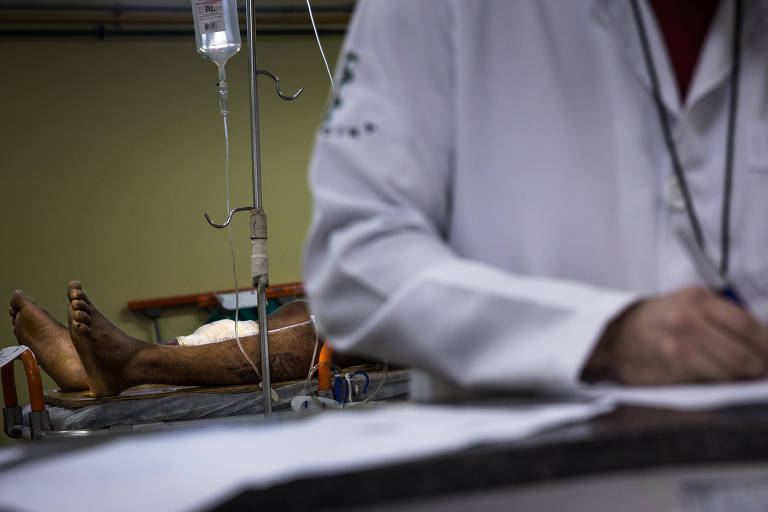It was four hours of surgery. Silvia (fictitious name) had to drain the chest, open the cervical region, and reverse the destruction of the young man's important blood vessels. All that "damn hard work," as she called it, however, went down the drain a few hours later.
At night, a group of traffickers entered the Federal Hospital of Bonsucesso, in the north of Rio de Janeiro, pretending to seek orthopedic care. They stormed the space where he was hospitalized with 11 other patients to "finish the job."
The guy died intubated on the stretcher, machine-gunned, while the doctors and nurses hid in their rooms.
The story happened about 15 years ago, but the surgeon, who did not want to identify with fear, does not forget the details.
Along with this, she remembers countless situations of violence that she has experienced in 30 years of working in Rio de Janeiro medical emergency care.
These doctors are also used to interacting with police and criminals in emergencies. At least one PM is always 24 hours on duty there to record occurrences.
"Whenever police officers come running in desperate or in a large group, it's because something went wrong. When he is a bandit, they come slowly, with the siren off," said orthopedic surgeon Ricardo Farias.
Health facilities in the state of Rio suffer the highest number of violent deaths in the country, considering aggressions (mainly firearms) and police interventions.
There were 2,296 deaths in 2017, according to Datasus, or one victim every four hours.
Translated by Kiratiana Freelon
